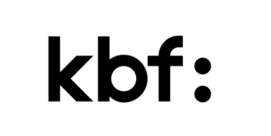Despite the fact that this year’s Sacrum Profanum Festival commissioned ten works, the programme also had some space to remind the audience about a few older pieces, or even to present them for the first time. The retro atmosphere was particularly apparent during a solo concert by the pianist (and mathematician) Reinhold Friedl, known to the festival audience from previous editions of Sacrum Profanum, during which he performed with his band Zeitkratzer.
The artist had a lot of space to play with sound – the spectrum of his works ranged from those created in the 1950s to the compositions from the second decade of the 21st century. Every single one was composed for a prepared piano, and in many cases, they looked more like a test of the instrument’s durability, rather than typical musical numbers. Aleatorism in Laurie Schwartz’s The Spaces³ slightly cracked open the door of fantasy, but it was Roman Haubenstock-Ramati’s graphic scores that urged the participants to let their interpretative imagination run wild. Rubbing on the instrument’s strings in his Studie in Form (a world premiere of the piece composed in 1954!) gave a sparkling effect of the sound of glasses rubbed with a finger, and moving a rod over the strings in Catch 2 sounded like sizzling, with various effects added on top of them. In Spaces³ by Schwartz, softly pressed keys competed for listeners’ attention with sudden, aggressive strumming.
Ana-Maria Avram’s Klavier Utopie was a cohesive, yet brutal dialogue between piano and the tape, increasing in loudness and fierceness with each passing minute of the piece, requiring Friedl to spend more and more energy – it is definitely a piece that serves as a good workout. Lucia Dlugoszewski was also present, this time with Early Floating – hearing the sound of piano was so surprising after ten or so minutes of tugging on and strumming strings, and listening of music played exactly as written down in the score was quite an outstanding experience. The shimmering motifs suddenly stopped, and the gentle touch of the strings with soft clubs soothed the ears accustomed to the noise. The musical events in Mario Bertoncini’s An American Dream, which took place against the background of steadily whistling strings, were similarly waving. Despite the dedication to Klaus Billing stating that the piece is “a page from an album, which is to be played and listened to by the same person, only one, on a calm Sunday afternoon,” it was good to give in to the subtlety of these sounds.
The Małe Instrumenty concert turned out to be pure fun. Paweł Romańczuk’s Metale were a bit of a performance, an invitation to listen to and discover sounds in everyday objects. Both rhythmic, punchy motifs played by four performers and irregularly appearing sounds of metal, sophisticated (though perhaps very ordinary?) instruments (objects?) resonated in the body. In POWERBIT! by Artur Zagajewski, rap replaced singing. The composer chose excerpts from Inni Ludzie by Dorota Masłowska, presenting a story of the protagonist’s dream of recording his own piece coming true. The protagonist was played by Zagajewski himself. The persistently repeated motif played on toy pianos, constituting the “stanzas” of the “recorded” song, was separated by the eponymous powerbit – a catchy, rhythmic chorus enhanced by the sound of a synthesizer. In the presented lyrics, the neighbourhood – the main theme of this year’s festival – was hostile and vulgar, focused on conflict in every possible field, while being alluring and tempting. It’s a shame that the concert was seated, because some stuff could go down. As you can see, beats taken straight from the local techno club are not that far away from the sacrum of intellectual scores presented during the previous concert.
Maryla Zając for the Sacrum Profanum Festival

